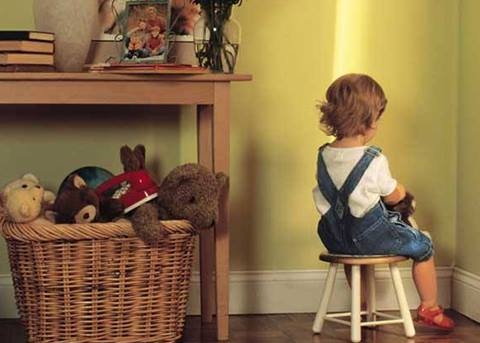Spotting Developmental Delays in Your Child: Ages 3-5
12/08/2016
-Ohana
-0 Bình luận
Every child grows and learns at his own pace, and the range of what’s normal is pretty wide. It’s helpful, though, to know the signs that your child might not have the skills most other kids have at his age. Doctors call those problems developmental delays.
Many delays aren’t serious, and most kids can catch up, especially when they get early treatment. The key is to get your child the help he needs as soon as you think there’s a problem. If you wonder whether your little one is falling behind in emotional, mental, or physical growth, don't wait to find out. Talk to his doctor right away.
What Are Developmental Delays?
There are many different types. Children might have problems with:
- Language or speech
- Movement, or motor skills
- Emotional and social skills
- Thinking skills
Language and Speech Delays
These problems are the most common type of developmental delay. They sound similar, but they’re different types of issues. Speech means the sounds that come out of a person’s mouth. Children who have a speech delay may stutter or have trouble saying words the right way.
Language refers to the meanings of sounds and gestures. Kids with language problems may have trouble expressing themselves or understanding others.
Possible causes. A delay in these skills can happen for many reasons, including:
- Problems with a child’s tongue or the roof of his mouth, which makes it hard to form sounds and words
- Hearing loss. Kids who’ve had a lot of ear infections can have hearing problems.
- A learning disability
- A developmental disorder, such as cerebral or autism spectrum disorder
What you can do. If you think your child has a problem with his speech or language, let his doctor know right away. The doctor will need to test his hearing. She’ll probably also suggest that your child see a professional who can diagnose and treat these delays, called a speech-language pathologist or speech therapist. This specialist will study how your child expresses himself, including:
- What he understands
- What he can say
- Other ways he tries to get his thoughts across, such as gestures or nodding
If your child does have a delay, he might need speech therapy. A therapist can work with him on how to pronounce words and sounds, and strengthen the muscles in his face and mouth. You can also work with your child on speech and language:
- Talk with her throughout the day. Point out objects or sounds at home, at the grocery store, in the car, or anywhere you go. Ask her questions and respond to her answers.
- Read to your child every day.
- Get treatment for ear infections or any other condition that might affect her hearing.
Speech and Language: What’s Normal
There’s no deadline for a child to start talking or using full sentences. But most kids reach speech and language milestones by a certain age. Let your child’s doctor know if he can’t do some of the following. Also, take note if your child loses skills he’s already learned.
By 3 years, kids usually:
- Talk in short sentences, can identify body parts, and make words plural
By 4 years, kids usually:
- Can tell a simple story and recall short nursery rhymes
- Use sentences of about five words
- Use "me" and "you" correctly
By 5 years, kids usually:
- Can understand two-part commands with prepositions ("under" or "on")
- Can give their first and last names
- Can use plurals or past tense the right way
- Ask questions like “Why?” or “Who?”
- Talk about what they did that day
Motor Skill Delays
Some children can have trouble with movements that use a lot of muscles, such as playing ball, or with smaller movements, like coloring. Sometimes the problem isn’t with their strength, but with their coordination. You may notice that your child seems clumsier than other kids his age.
Possible causes. Most of the time, doctors can’t find a specific cause or diagnosis for delays in motor skills or coordination, but some children have medical issues that cause them or make them worse. They include:
- Vision problems
- A lack of muscle control, called ataxia
- Trouble with how the brain coordinates and plans movements, called dyspraxia
- Muscle diseases
- Cerebral palsy
What you can do. For motor delays, your child's doctor may suggest that you encourage your little one to move and be active at home. He may also need:
- Physical therapy to help him with movements that use a lot of muscle groups
- Occupational therapy to improve small movement skills or coordination problems
- Medication or other treatment for a muscle disease
Motor Skills: What’s Normal
Kids usually get stronger and more coordinated as they grow up. Let the doctor know if your child isn’t meeting some of the following milestones or seems to be losing any motor skills he’s already learned.
By 3 years, kids usually can:
- Keep their balance and go up and down stairs
- Work with small objects
- Stack more than one block
- Use both sides of their body
- Stand on one leg for more than a few seconds
By 4 years, kids usually can:
- Throw a ball overhead or catch a large ball
- Jump in place or hop on one foot
- Ride a tricycle
- Grasp a crayon between their thumb and fingers and scribble
- Stack four blocks
By 5 years, kids usually can:
- Build a tower of six to eight blocks
- Gallop or skip
- Use a child-friendly scissors
- Hold a crayon comfortably
- Take off their clothing easily
- Stand on one foot for 10 seconds
- Walk up or down stairs alternating steps without using the handrail
- Brush their teeth
- Wash and dry their hands
Social and Emotional Delays
These problems can mean children have trouble getting along with adults or other children. Most of the time, the issues show up before kids start school.
One common cause of social and emotional delays is called autism spectrum disorder, or ASD. It can affect how a child expresses himself, interacts, behaves, and learns.
What you can do. Treatment for a social or emotional delay depends on the cause and how much it affects your child’s life. You’ll probably work closely with your child’s doctor and other professionals to find what helps him the most.
Medication or special types of behavioral therapy can help if your child has behavior problems from a delay. You can also work with a therapist to learn how to encourage good social and emotional skills at home. The earlier you work on these problems, the more likely your child can catch up to other kids his age.
Social or Emotional Skills: What’s Normal
By 3 years, kids usually:
- Show interest in other children
- Get more comfortable being apart from parents or caregivers
- Can keep good eye contact
By 4 years, kids usually:
- Cling or cry less often when their parents leave
- Pay attention to other children
- Respond to people outside of the family
By 5 years, kids usually:
- Show a wide range of emotions
- Can separate from their parents easily
- Want to play with other children
Cognitive Delays
There are a lot of reasons a child may have problems with their ability to think, learn, and remember, called cognitive skills. Causes can include flawed genes, physical problems, environmental factors, premature birth or other issues before they were born, and even accidents. But most of the time, doctors can’t find a specific cause for a cognitive delay.
What you can do. The most important thing is to let your child’s doctor know if you think something isn’t right. If the doctor agrees, she’ll recommend a specialist who can figure out what the problem is. Depending on your child’s diagnosis, he might get help from:
- Play therapy or occupational therapy
- Special education
- Sometimes, medication can help with behavioral problems that can come with cognitive delays, like mood swings or lack of attention.
Cognitive Skills: What’s Normal
By 3 years, kids usually:
- Can copy a circle
- Understand simple instructions
- Join in "pretend" or "make-believe" play
- Like to play with toys
By 4 years, kids usually:
- Join in interactive games
- Get involved in fantasy play
- Can copy a circle
By 5 years, kids usually:
- Aren’t as easily distracted
- Can concentrate on one activity for more than 5 minutes
You know your child better than anyone. Don’t be afraid to let his doctor know as soon as you feel something isn’t right. No matter what kind of developmental delay he might have, early diagnosis and treatment is the best way to make it better.











